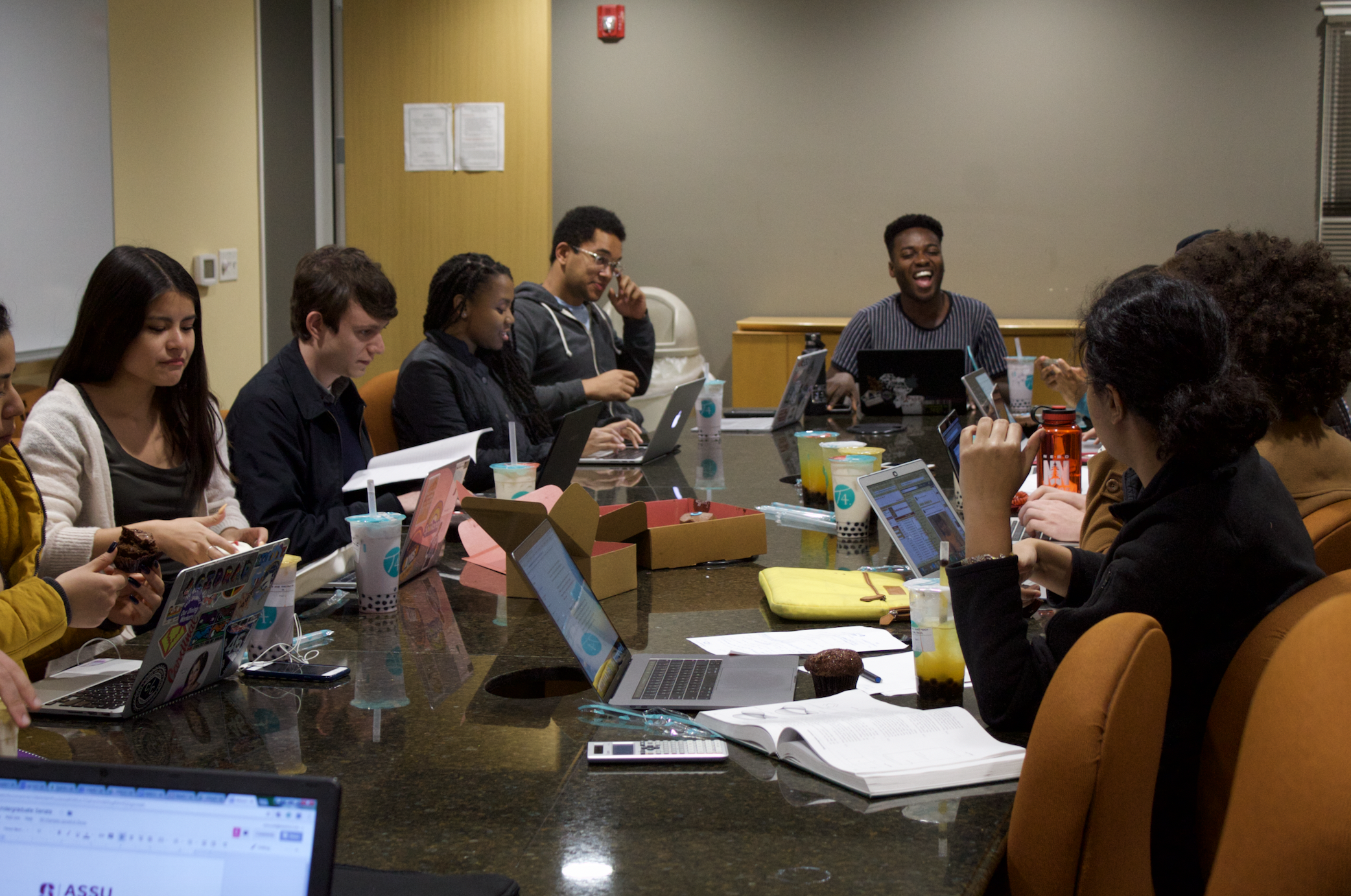In its 24th meeting, 19th Undergraduate Senate addressed concerns regarding annual funding reductions on account of students’ waiving their activities fees. Senators also advocated for a need-blind admission policy for international students and more student input in the search for a new Counseling and Psychological Services (CAPS) director.
The Senate also passed a resolution appointing Josie Bianchi ’20 to the ASSU Constitutional Council.
Student Activities Fee, an waivable payment that funds student-led initiatives, has garnered attention. Caleb Smith ’17, general manager of the KZSU radio station, reported to the Senate that the “student fee waiver buffer fund has been depleted.”
This reduction has occurred because of the roughly 11.5 percent of students who waived their activity fee, which has resulted in a decrease in funding for annual grant groups, according to Smith.
Overall, Smith and members of the Senate expressed interest in finding longer-term solutions to these funding challenges. One solution, according to Smith, involves working with the financial aid office to “find a way to abolish the student fee waiver process [and] eliminate this free-rider issue.”
The Senate also approved a bill to appoint Bianchi to the ASSU Constitutional Council. The Council comprises five members, but before Bianchi’s appointment there were two vacancies, leaving the Council one member short of their quorum. A pending case before the Constitutional Council increased the urgency of reaching a quorum, according to ASSU Executive Justice Tention ’18.
The ASSU aimed to appoint someone “objective, apolitical, [and] respectful of the protocol” to the Council, Tention added.
“We think [Bianchi] fits all of these criteria,” he said.
Additionally, the search for a new CAPS director has entered its final phase with three candidates left for consideration. Tention urged students to show up to question-and-answer sessions with CAPS director candidates and student leaders.
“It’s really important to have students show up, not just for you to ask questions of the candidates but also because it’s useful for the [potential] director to ask questions of the students as well,” Tention said. “You can have major influence on who the final CAPS director is.”
Senate committees also provided updates on their progress. Academic Affairs Committee Chair Janique Lee ’20 discussed the conclusion of the Stanford FLI Conference, held the previous weekend.
Advocacy Committee Chair Hamzeh Daoud ‘20 discussed the strong response to a recent initiative calling on Stanford to use need blind consideration for international students. Currently, Stanford’s admission office is need-blind for domestic applicants, but may take financial need into consideration when evaluating applications from international students. Within 24 hours, the petition generated over 833 responses and 97 individual narratives.
The Appropriations Committee, chaired by Gabe Rosen ’19, reported being under budget for quick grants this quarter, with substantial funds still available for groups in need of funding.
Communications Committee Chair Lark Wang ’20 reported the successful conclusion of the Ask Your Senators Advice Brunch, an initiative designed to provide candidates for ASSU with advice from sitting Senators.
“I have a lot of confidence in the incoming prospective senators,” said Kimiko Hirota ’20. “The event was super helpful. If I had been told that when I was running, things would be different.”
Contact John Timony at jtimony ‘at’ stanford.edu.
